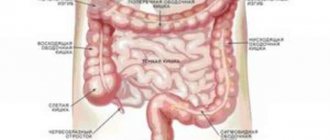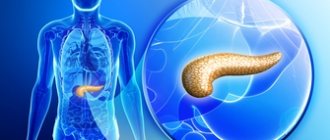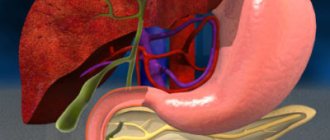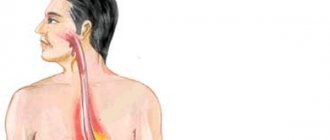January 30, 2020 | Comments: | Views: 235
Home » Health » Causes of hiccups in adults
Rate this article:
(No ratings)
Hiccups can suddenly occur in a completely healthy person, and, as a rule, for no apparent reason. Scientists characterize hiccups as a violation of respiratory functions resulting from contraction of the diaphragm. Hiccups are a harmless phenomenon that goes away as suddenly as they appear.
The nature of prolonged hiccups
Prolonged hiccups can last for several days or more. Unpleasant symptoms occur both during the day and at night. Often the pathological condition is accompanied by headaches, nausea and belching.
On this topic
- Hiccups
Everything you need to know about hiccups
- Ekaterina Nikolaevna Kislitsyna
- March 26, 2020
This condition may indicate the progression of the following problems:
- damage ;
- inflammation of the gallbladder and stomach;
- dysfunction of the central nervous system;
- diabetes ;
- intestinal infection - giardiasis or helminthiasis.
The cause of the pathology is finally identified with the help of examinations prescribed by a neurologist.
Kinds
Long hiccups are divided into several types:
- Peripheral. The disease occurs, as a rule, against the background of disruption of the nerves of the diaphragm. The cause of hiccups may be inflammation of the vagus nerve or pathology of the stomach and gallbladder.
- Toxic. The development of an uncomfortable state is associated with the entry into the human body of a large number of harmful substances. Toxic hiccups are often observed in patients suffering from uremia. Many toxic substances accumulate in the body in people with diabetes. In this case, impaired metabolism causes irritation of the peripheral nerve. Toxic hiccups are noted by patients after anesthesia and food poisoning.
- Central is the most common type of long-term hiccups. This type of pathology is associated with damage to parts of the brain and spinal cord: stroke; encephalitis; meningitis.
Another rarely encountered type of prolonged hiccups is reflected contraction of the diaphragm. The disease occurs due to organ damage due to helminthiasis or giardiasis. Most often, males are susceptible to the pathological condition.
Causes of prolonged hiccups
Involuntary hiccups, which continue for a long time and are debilitating in nature, in most cases are caused by serious damage to various organs.
Often, with complications caused by pneumonia, the patient develops prolonged hiccups.
Experts explain this by saying that the infection irritates the muscles of the diaphragm, causing the person to suffer from unintentional contraction.
In most long-term smokers, the cause of lingering hiccups may be an oncological lesion of the chest.
As the disease progresses, the tumor irritates the diaphragm, resulting in a prolonged spasm.
A hiatal hernia provokes damage to the muscles of this organ, as a result of which the patient begins to develop a prolonged contraction of the diaphragmatic muscles.
Experts often record in adults suffering from liver diseases such a side syndrome associated with this disease as long-term debilitating muscle diaphragmatic cramps.
Also among the common factors that provoke unintentional contraction of the diaphragmatic muscles are the following:
- diseases of the central nervous system;
- infectious lesions of the human body;
- gallbladder disease;
- digestive system problems;
- diabetes;
- narrowing of blood vessels;
- helminthiasis
Experts note that often the cause of prolonged unintentional diaphragmatic contraction in women is psychogenic in nature.
Causes
Abnormal hiccups occur with periodic frequency - at least 2-3 times a day, or do not stop all day. Medicine knows of cases where the pathological process in patients did not stop for a month or even a year.
Prolonged hiccups are a reason to contact a therapist, who, based on the results of a survey and tests, will give a referral to a specialist with a more specialized profile.
There are several factors that predispose to the occurrence of prolonged hiccups:
- Taking certain groups of drugs. These include corticosteroids and other medications that affect hormonal levels. Barbiturates and some types of drugs used for general anesthesia can also cause a similar reaction.
- Brain tumors
- Diseases that disrupt metabolism. These include: diabetes, obesity, uremia, gout.
- Worms. Some types of parasites lay larvae not only in the intestines, but throughout the human body, including in the organs of the respiratory system. This causes prolonged contraction of the diaphragm.
- Diseases of the gastrointestinal tract. Pathologies such as stenosis, reflux, gastritis and gastric ulcers lead to the accumulation of excess air in the diaphragm. The consequence of this is constant belching and hiccups.
- Kidney damage .
- Some types of infections are meningococcus, malaria, syphilis, toxoplasmosis. The waste products of bacteria cause severe intoxication of the body and attacks of indomitable contraction of the diaphragm.
- Alcoholism.
- Damage to the skull, soft tissues and chest.
- Damage to the cardiovascular and nervous system - heart attack, stroke, nervousness, depressive syndrome.
A problem of a chronic nature can arise due to severe hypothermia or fear, haste while consuming food. A possible cause of incessant hiccups is surgical operations performed on the spine or stomach area.
Causes of hiccups in adults
Depending on the type and type of diaphragmatic contractions, certain factors of hiccups are determined.
Short term
Short-term diaphragmatic contraction is usually accompanied by thirst or hunger, a feeling of overeating and intoxication, excessive anxiety or hypothermia, abuse of baked goods and severe stress.
Most often, short-term hiccups occur:
- Against the background of rapid consumption of food, during which an excess amount of air penetrates into the stomach during swallowing;
- Due to a sharp temperature jump, for example, when a patient enters an apartment from the street in winter. When warmed up, all unpleasant symptoms disappear;
- Against the background of prolonged crying or severe fear. In these conditions, muscle tissue is overstrained, which provokes the development of short-term hiccups. To stop such hiccups, it is enough to drink a glass of warm water in small sips.
Such factors do not have a pathological origin, and therefore no referral to specialists is required. Short-term attacks of hiccups can be eliminated on your own.
Constant
If hiccups continue to bother you for a long period of time, debilitating and exhausting the patient, then the reasons must be sought in more serious factors.
- Prolonged hiccups often occur in patients with pulmonary pathologies of an inflammatory nature. During the infection process, the diaphragmatic muscles become irritated and begin to contract unintentionally;
- Prolonged hiccups are also familiar to smokers who have a long history of harmful addiction. Very often, such patients are diagnosed with thoracic oncopathologies. With the long-term formation of the tumor process, irritation of the diaphragmatic tissue occurs, provoking prolonged muscle cramps.
- Often the cause of long-term hiccups is a herniation of the food diaphragmatic opening. Hiccups in such patients are often a characteristic manifestation of the disease.
In addition, prolonged convulsive contractions of the diaphragm can be provoked by nervous system pathologies, infections or gall bladder diseases, diabetes and helminthiasis, digestive disorders or narrowing of blood vessels. In women, hiccups are sometimes a consequence of psychogenic problems.
Neurological
Involuntary diaphragmatic contractions of neurological origin occur as a result of pathological nervous system disorders. Neurological pathologies provoke an increase in the excitability of the nervous system, which causes varying intensity and uncoordinated diaphragmatic impulses, which are the cause of hiccups.
If such attacks bother patients for a long time, they can lead to nervous breakdowns, fatigue or severe stress. Prolonged spasms of the diaphragmatic muscles can also be caused by conditions such as stroke or encephalitis, traumatic head injuries or spinal cord injuries, as well as neurosystemic oncopathologies.
These ailments are extremely dangerous, but sometimes they do not differ in the severity of symptoms. Therefore, if prolonged attacks of hiccups occur, you need to contact a specialist and inform him about all injuries and even minor bruises to the head, then it will be much easier to detect the etiology of hiccups.
If a specialist identifies the presence of signs of nervous system lesions, then the therapeutic approach involves, first of all, stopping these manifestations.
For debilitating hiccups, diagnostic examination using X-ray methods, MRI and computed tomography, and examination of blood and cerebrospinal fluid parameters are recommended. Based on diagnostic data, appropriate therapy is prescribed.
Peripheral
Peripheral hiccups usually occur against the background of various lesions of the diaphragmatic organs. The vagus nerve is constantly in an irritated state, so the diaphragmatic muscles are constantly exposed to impulses, which causes constant hiccups.
Experts call the following reasons for the occurrence of peripheral diaphragmatic spasms:
- Pulmonary neoplasms;
- Pulmonary pleurisy;
- Various lesions of the abdominal organs;
- Neuritis of the diaphragmatic nerve;
- Damage and various types of inflammatory lesions of the diaphragmatic localization.
If the patient is constantly bothered by involuntary contractions of the diaphragm, then he needs to undergo examination, because such a symptom may indicate the development of similar ailments.
Toxic
This form of hiccups is considered the most dangerous. Prolonged attacks of toxic hiccups usually occur while taking certain medications, resulting in intoxication of all structures of the body with all the ensuing complications and consequences.
Usually, treating the consequences of drug intoxication takes quite a long time and is considered a rather complex process. One of the consequences may be prolonged hiccups.
Diabetes can also trigger toxicogenic hiccups. With the development of diabetic conditions, patients are often tormented by debilitating hiccups, the cause of which is a metabolic failure with disruption of the metabolic processes of sugars, lipids and proteins.
Against the background of these disorders, chronic intoxication and diabetic neuropathy occur, affecting the fibers of the vagus nerve. Long-term attacks of hiccups in this case occur due to damage to the vagus nerve due to diabetes.
Physiological
The most harmless form of hiccups is physiological hiccups. This condition does not require drug therapy; after a short period of time it goes away on its own. Typically, such hiccups are caused by the release of accumulated air and gases in the gastric cavity.
Air can accumulate from eating too quickly, laughing for too long, or eating dry food often. In adults, attacks of hiccups often occur due to alcohol abuse. Such hiccups can be easily eliminated using simple home methods.
Symptoms
Physiological hiccups manifest themselves as a nervous tic. This symptom is the only one with short-term contraction of the diaphragm muscles. The pathological condition is accompanied by other signs:
- the occurrence of heartburn;
- pain when swallowing and hiccups;
- a feeling of heaviness in the esophagus;
- excessive salivation, indicating damage to the cells of the nervous system;
- sudden cough;
- painful attacks in the sides and back;
- migraine.
On this topic
- Hiccups
List of causes of hiccups in adults after eating
- Editorial office of Neuralgia.ru
- March 26, 2020
Prolonged hiccups, accompanied by unpleasant sensations in the shoulders and back, indicate diseases of the spinal trunk, for example, osteochondrosis.
If hiccups do not go away for a long time in a child, then this should not go unnoticed by parents. The condition often manifests itself as a symptom of more dangerous diseases - pneumonia or dysfunction of the nervous system.
Recommendations for the treatment of hiccups in newborns
To alleviate the child’s condition, parents are recommended to do the following:
- offer the baby your breast, this will help the baby calm down, warm up, and relieve nervous tension;
- in case of flatulence, carry the baby in the soldier position, this action will help the newborn burp air or milk that is filling the stomach;
- During feeding, hold the baby at an angle of 45 degrees;
- do not overfeed your newborn;
- follow the feeding schedule.
Drug therapy for hiccups
If prolonged hiccups occur in an infant, accompanied by tearfulness, anxiety, and sleep disturbances, the baby should be shown to a specialist as soon as possible.
Diagnostics
To prescribe competent treatment for prolonged hiccups, it is suggested to undergo a series of tests:
- Anamnesis is the collection of data about the history of the disease and its accompanying symptoms.
- Laboratory tests: OAM to identify pathologies of the urinary system; blood sugar test - to exclude or confirm diabetes.
- Instrumental studies: fluoroscopic examination of the chest to identify the vagus nerve, ECG, endoscopy of the throat and stomach.
People suffering from prolonged hiccups are also advised to undergo an MRI. Based on the results of the examinations, the patient will be referred to a specialist of the required profile - a neurologist, surgeon or gastroenterologist.
How to get rid
So, we found out that you cannot die from hiccups. Is it possible to quickly stop an attack? After all, although this condition does not pose a danger, it is still extremely uncomfortable. I want to get rid of hiccups as soon as possible. How to do it? There are several methods:
- Drink a glass of water in slow sips.
- In the period between spasms, try to take a deep breath and hold your breath.
- Massage the diaphragm area.
- Place a piece of lemon on your tongue.
- Pull sharply on the tip of your tongue. This helps stimulate the cranial nerves and stop hiccups.
- Dissolve a piece of sugar in your mouth.
Usually these measures are enough to stop the attack. Drug treatment is required only for prolonged, frequent and persistent hiccups. The sedatives Corvalol and Valocordin are prescribed, as well as the antiemetics Cerucal and Motilium. These medications help relieve irritation of the vagus nerve.
In more severe cases, anticonvulsants Finlepsin and Baclofen are used. But such medications are strictly prescription and should only be taken as prescribed by a doctor.
Treatment
Incessant hiccups are a sign of some kind of ailment, so its treatment will be aimed at eliminating the original source of the problem. At the same time, the specialist prescribes medications to eliminate the symptomatic picture of the pathology.
Medicines are prescribed only in cases where traditional medicine and breathing exercises do not help.
For the treatment of pathology, one group of drugs or a complex treatment regimen can be prescribed. If the problem cannot be eliminated with the help of medications, then doctors resort to radical methods:
- Inhalations using carbon dioxide. During the procedure, the respiratory center is activated and makes the respiratory organs and diaphragm work smoothly.
- Insertion of a catheter into the airway. A thin tube is passed through the patient's nose to the nerve endings of the vagus nerve. The main disadvantage of the procedure is the discomfort from inserting the catheter.
- Novocaine blockade.
The latter technique is used only in extreme cases: if prolonged hiccups are associated with inflammation of the organs located in the chest. In addition to medications, to eliminate the problem it is necessary to regularly perform breathing exercises, follow nutritional rules and give up (at least temporarily) bad habits.
Hiccups during pregnancy
While carrying a child, every woman's body undergoes many changes. Hormonal changes affect the mental state, and the enlarged uterus puts pressure on the internal organs. Therefore, pregnant women often suffer from hiccups. As a rule, it does not pose any threat to the life and health of the expectant mother and child, and after its birth it goes away on its own.
If hiccups are accompanied by pain and are persistent, then you should consult a specialist. It may indicate serious health problems that need to be addressed immediately.
Causes of hiccups in pregnant women
Depending on the stage of pregnancy, the causes of hiccups may vary.
If a woman is in her first trimester, then hiccups can be caused by the following factors:
- Errors in nutrition and digestive disorders. Most women experience an increase in appetite, and enzymes are produced in smaller quantities. As a result, the gastrointestinal tract has difficulty digesting large amounts of food, which leads to irritation of the vagus nerve and the person begins to hiccup. If a woman leads a sedentary lifestyle, then hiccups can become her constant companion.
- Emotional stress. A woman’s psyche is influenced by hormones, and any experiences can provoke hiccups.
- Increased gas formation in the intestines. The cause of flatulence, and consequently hiccups, is not only overeating, but also enzymatic deficiency, as well as a weakening of intestinal motility, which is associated with the influence of progesterone on it.
- Toxicosis, which can develop in the early stages. In addition to nausea and vomiting, weakness and dizziness, a woman may suffer from hiccups.
- Other reasons that are not mutually related to pregnancy.
If hiccups develop in late pregnancy, the following reasons can provoke it:
- Errors in nutrition, increased gas formation.
- Increased nervous tension.
- Pressure on the diaphragm by the growing uterus. This is often the reason why a woman hiccups during the night, especially when she sleeps on her back. The uterus can significantly compress the vena cava, which will lead to poor circulation. In severe cases, even loss of consciousness is possible.
- Toxicosis and preeclampsia in late pregnancy is a dangerous condition that poses a threat to the life of mother and child. A woman’s blood pressure rises, severe swelling is observed, her central nervous system suffers, which can lead to bouts of persistent hiccups.
- Other health problems that are not related to pregnancy.
How to get rid of hiccups during pregnancy
To get rid of hiccups during pregnancy, you can follow these recommendations:
- If a woman feels that she is cold, then it is necessary to warm the body. You can drink warm tea.
- You need to eat right, eat small portions, and not eat at night.
- It is important to learn to remain calm. Household little things are not a reason for frustration. The more positive emotions a woman experiences, the better for her and for the child.
- If a woman suffers from heartburn, then you can drink mineral water without gas, for example, Essentuki or Borjomi.
- Oranges and lemons can help you cope with hiccups, but you should not overeat citrus fruits.
- You can do breathing exercises, but the exercises must be feasible and designed specifically for pregnant women.
- You can drink water using different techniques: small or large sips.
- You should not exercise during early pregnancy. To cope with hiccups, you can take a knee-elbow position and stand in it for several minutes. This activity allows you not only to get rid of an attack of hiccups, but also reduces the load on your back, joints, and veins. In general, this pose is beneficial for the body. When hiccups develop during a night's rest, you just need to lie on your side.
- You can hold honey or sugar in your mouth.
- Inhaling pleasant aromas helps calm the nervous system. For this purpose, you can use lavender, sandalwood, pine needles, etc. oil. It is important that they do not provoke the development of allergies.
- A pregnant woman should not be frightened to help her cope with hiccups. This can lead to serious consequences, even to the point that the child takes the wrong position.
You should not take medications if a woman is pregnant. This is especially true for early pregnancy. If you cannot cope with hiccups using simple methods, then you need to consult a doctor. Only he can recommend medications that will be as safe as possible during this period.
Medicines to treat hiccups in pregnant women
If a woman suffers from indigestion, she may be prescribed medications such as:
- Enzymes (Mezim, Pancreatin, Festal).
- Activated carbon.
- Rennie, Maalox, Almagel.
- Dill water and Espumisan.
If a pregnant woman’s hiccups are neurogenic in nature, then she may be prescribed medications such as:
- Magne B6.
- Motherwort and Valerian.
- Novopassit.
- Glycine.
Medicines to stop vomiting or muscle relaxants are most often not prescribed to pregnant women. They are used only in emergency cases.
A woman should lead a measured lifestyle, eat right and get enough rest. This will avoid many health problems and minimize the likelihood of hiccups.
What to do if hiccups don't go away
The most common way to get rid of hiccups is to drink plenty of cold water. Other ways to get rid of the symptoms of the problem should be noted:
- Consumption of salt and sugar. Different tastes will irritate the nerve receptors in the mouth and help normalize the functioning of the vagus nerve. To do this, granulated sugar and salt (in the amount of 1 teaspoon each) are slowly dissolved in the mouth.
- Vomiting reflex. It is enough to simply press on the root of the tongue, without inducing vomiting. The function of gagging is also controlled by the vagus nerve. This way, he can switch off from the hiccups to do another task. The technique is suitable for eliminating hiccups of any pathogenesis.
- Drinking water with drops of mint. The product allows you to relax the muscle ring that separates the stomach and esophagus. Thanks to this, excess air is removed from the stomach.
- Activation of reflex zones. The procedure helps to cope with the problem that has arisen against the background of neurological disorders.
Most often, hiccups occur against the background of respiratory dysfunction, so breathing exercises can help eliminate them:
- Alternate between holding air and taking a deep breath.
- Intensive inflation of a paper bag.
- deep breaths with your body leaning forward. Your hands should be clasped together and placed behind your back.
- Smooth breathing with light pressure of the fingers on the chest.
- Exhale slowly for at least 5 seconds.
- Swinging the press with lifting the torso while exhaling.
If during breathing exercises the patient feels nausea or dizziness, then it is necessary to refuse to perform the exercises. Discomfortable conditions from exercise (lack of oxygen, redness of the face) can be eliminated with calm, deep breaths and exhalations.
What is hiccups
Hiccups are a rather unpleasant phenomenon that every person has probably encountered from an early age and throughout their lives. From a scientific point of view, hiccups are a subtype of myoclonus (very frequent muscle twitching, including contraction and weakening).
As you know, all the nerves in the human body are interconnected. One of these ( the vagus nerve ) runs in the abdominal cavity in such a way that it affects all its organs and is closely pressed against the esophagus in a narrow passage through the diaphragm.
Physiological hiccups are a consequence of injury to this nerve in this area. Or the vagus nerve receives a signal from other damaged organs and pathological hiccups begin.
In any case hiccups are a condition in which the muscular structure of the diaphragm contracts convulsively, involuntary inhalation begins and the simultaneous closure of the airways with the slamming of the glottis begins. Thus, the characteristic sound “ik” is formed.
Hiccups occupy one of the leading places among human ailments that make us forget about the comfort of the body. It can occur in any person suddenly, at the most unpredictable moment and lasts for several minutes or does not stop for days.
Consequences
Usually, frequent bouts of hiccups do not lead to serious complications. However, prolonged and uncontrollable hiccups can cause some consequences:
- sudden weight loss, since with an abnormal condition it becomes difficult to eat;
- insomnia;
- increased fatigue, because with frequent attacks a person cannot rest and eat enough;
- inability to carry on a conversation;
- long healing of sutures after surgery.
A person suffering from prolonged bouts of hiccups feels uncomfortable around people. For this reason, the pathological condition can lead to serious moral damage. This is why uncontrollable contractions of the diaphragm require urgent medical attention.
Prolonged hiccups, in contrast to short-term attacks, almost always indicate the presence of dangerous diseases in the body. They may be associated with dysfunction of the respiratory, nervous or musculoskeletal systems of the body, as well as the gastrointestinal tract.
Therefore, with constant contractions of the diaphragm muscle, it is necessary to urgently consult a doctor. Timely treatment will allow the patient not only to get rid of the unpleasant symptoms of the problem, but also to prevent the development of serious complications.
Causes of neurological hiccups
The basis for the occurrence of neurological type hiccups are various pathological disorders of the central nervous system in adults.
With neurological diseases, there is an increase in the excitability of parts of the nervous system, as a result of which the diaphragmatic muscles begin to be exposed to impulses of varying intensity and consistency with each other.
This process provokes bouts of prolonged hiccups.
Prolonged hiccups can provoke emotional fatigue, nervous breakdowns, and severe stress.
The following diseases often lead to prolonged muscle spasms of the diaphragm:
- encephalitis;
- stroke;
- oncological pathologies of the central nervous system;
- severe head injuries;
- spinal cord lesions.
These diseases are extremely dangerous and it often happens that they do not have pronounced symptoms, so it is extremely important to inform the doctor about all even minor injuries, then it will be easier for him to detect the causes of the patient’s prolonged hiccups.
If symptoms of nervous system damage are detected, treatment for involuntary diaphragmatic spasms is based on relief of these symptoms.
In this case, diagnosing debilitating hiccups means the use of x-rays, computed tomography and magnetic resonance imaging, examination of the spinal cord fluid and the patient’s blood counts.
Treatment is prescribed based on examination results.











